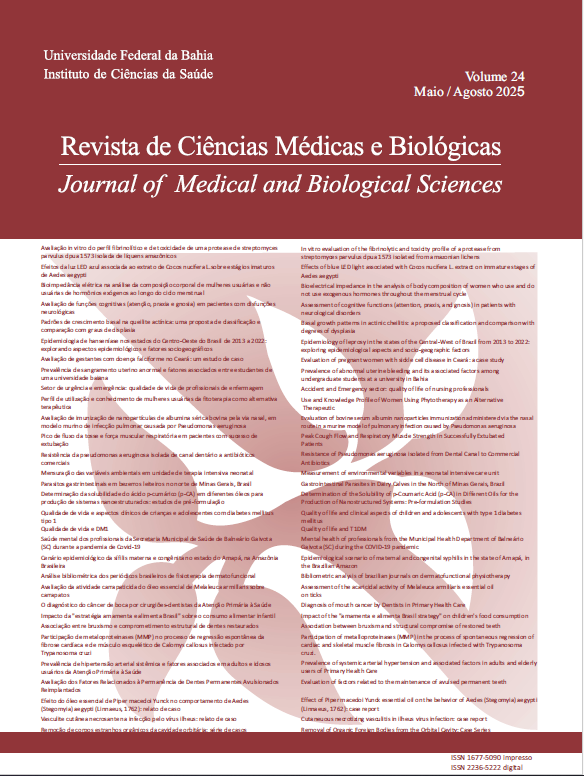PEAK COUGH FLOW AND RESPIRATORY MUSCLE STRENGTH IN SUCCESSFULLY EXTUBATED PATIENTS
PEAK COUGH FLOW AND RESPIRATORY MUSCLE STRENGTH
DOI:
https://doi.org/10.9771/cmbio.v24i2.67251Keywords:
Cough, Respiratory Function Tests, Extubation, Intensive Care UnitAbstract
Introduction: Peak Cough Flow (PCF) and Respiratory Muscle Strength (RMS) are essential in the functional assessment of critically ill patients as they predict the success of extubation. Objectives: To correlate PCF and RMS in successfully extubated patients admitted to an Intensive Care Unit (ICU). Methods: This was a cross-sectional study carried out in a university hospital ICU between May and October 2024. Adult patients extubated more than 48 hours ago and without cognitive deficits were included. PCF was assessed with a Peak Flow Meter, and MIP/MEP by manovacometry. Statistical analysis used Pearson's correlation coefficient, with results expressed as median and interquartile range, adopting p<0.05 as significance. Results: The sample included 20 patients, mostly men (55%), with a mean age of 63 years. The duration of MV ranged from 16 to 116 hours, and the median hospital stay was 9.5 days. The median PCF was 185 L/min, and most of the sample was below the predictive limit (160 L/min). MIP and MEP were also below the predictive value proposed by Neder. A significant negative correlation was observed between the duration of MV and PCF (r= -0.583), and a small correlation between MIP and MEP (r= 0.426). There was no statistically significant correlation between RMS and the length of hospital stay, duration of MV, or time after extubation. Conclusion: The findings suggest that post-extubated patients present a reduction in PFT and FMR, and a reduction in coughing the longer the MV time. MIP can influence the generation of an effective PFT, and there is a possible association between MIP and MEP.
Downloads
Downloads
Published
How to Cite
Issue
Section
License
Copyright (c) 2025 Journal of Medical and Biological Sciences

This work is licensed under a Creative Commons Attribution 4.0 International License.
The Journal of Medical and Biological Sciences reserves all copyrights of published works, including translations, allowing, however, their subsequent reproduction as transcription, with proper citation of source, through the Creative Commons license. The periodical has free and free access.


